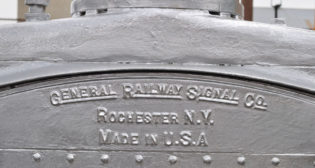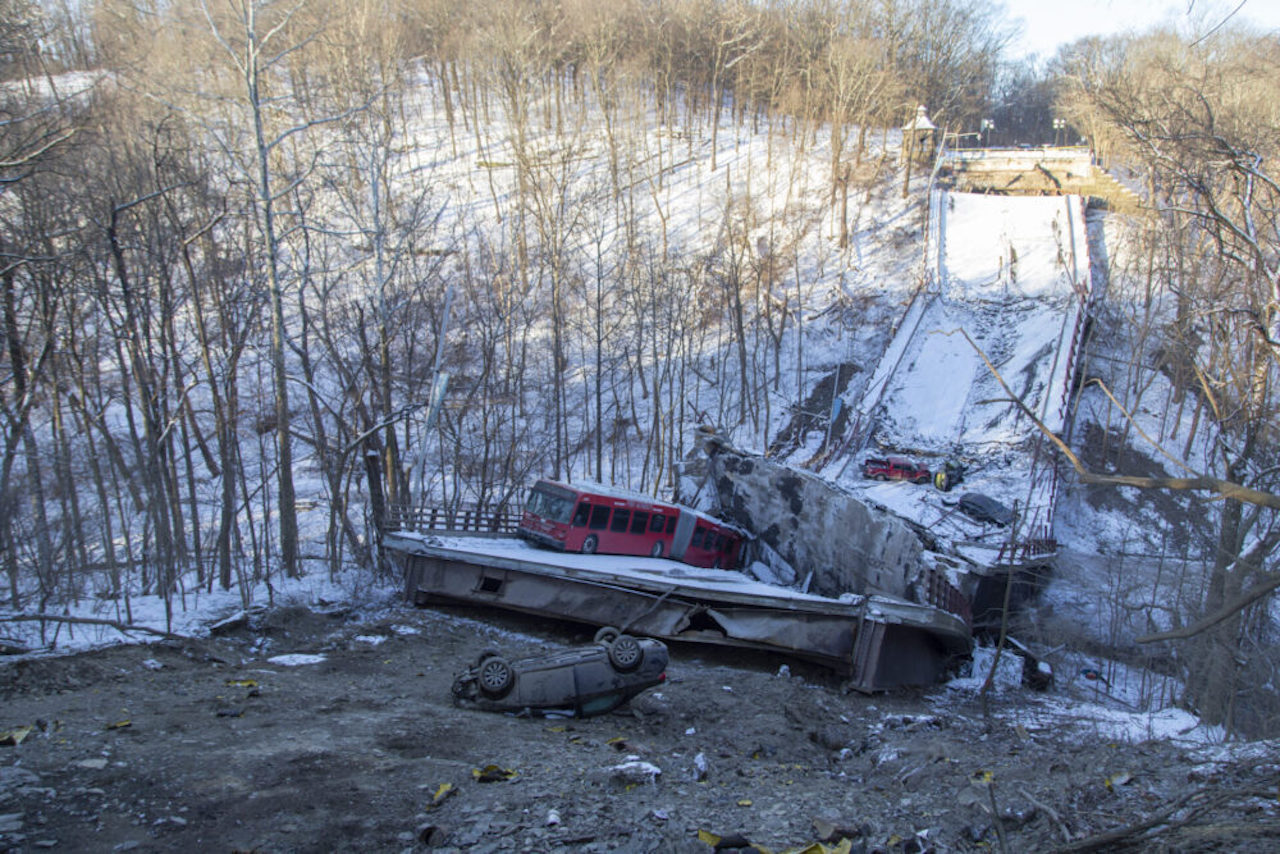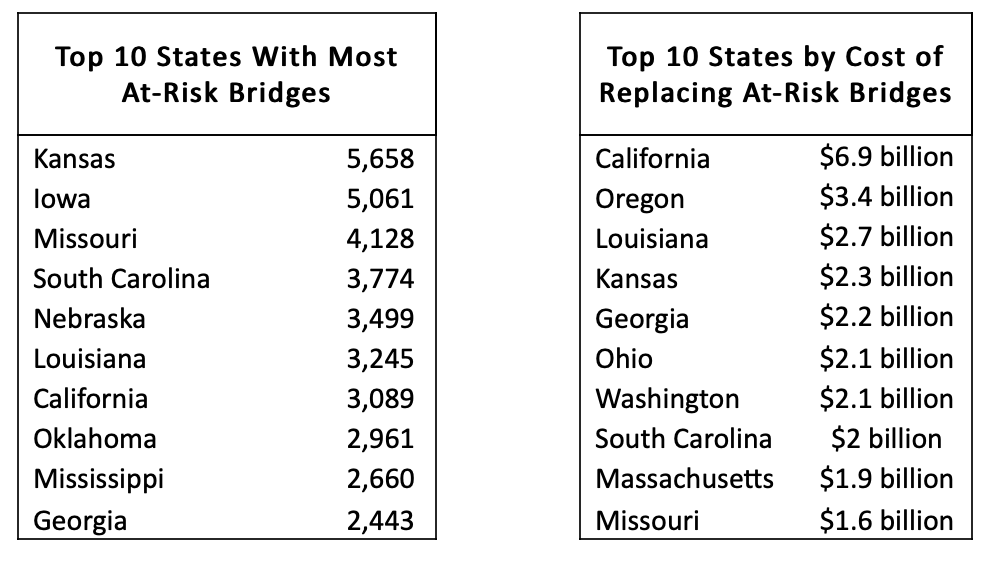
CABT Study: ‘Our Bridges Can’t Handle Bigger Trucks’
Written by Carolina Worrell, Senior Editor
CABT photo
A new study released by the Coalition Against Bigger Trucks (CABT) shows that more than 72,000 bridges nationwide cannot safely handle the heavier truck weights that special interests are lobbying federal legislation to put onto the roads, and that replacing these bridges would cost taxpayers more than $600 billion.
The report, The Impacts of Heavier Trucks on Local Bridges, March 2023, (download below) which was conducted in coordination with CABT and co-authored by county officials responsible for maintaining their local bridges, including Rick Bailey, Johnson County Commissioner (TX); Josh Harvill, Chambers County Engineer (AL); Brian Keierleber, Buchanan County Engineer (IA); Thomas Klasner, Jersey County Engineer (IL), evaluated more than 474,000 bridges off the National Highway System and found roughly 15% could not handle the proposed heavier trucks.
The study utilized inspection data from the National Bridge Inventory to compare the rated carrying capacity with the proposed higher weights. If the weight exceeded the carrying capacity, the bridge was deemed at risk, requiring immediate action to avoid further damage or collapse. The study authors agreed replacement was the only solution.
Key findings of the study include the following:
- The study identified 72,240 local bridges nationwide that do not have sufficient weight ratings to safely accommodate 91,000-pound trucks. The cost of replacing these bridges would be $60.8 billion.
- Nearly 90% of bridges rated in poor condition are local bridges, off the National Highway System (National Bridge Inventory).
- There are 33,702 local bridges that are more than 90 years old, built when the Model T was still on our roads.

According to CABT, the study authors are traveling to Washington to deliver the report during meetings with Members of Congress on March 29.
H.R. 471, a bill that would raise semi-truck weights on interstates and National Highway System roads by five and a half tons, from 80,000 to 91,000 pounds, was introduced earlier this year.
“No truck trip starts and stops on the interstate,” Harvill said. “Trucks travel on our local roads every day, and proposals to raise weights would compromise additional bridges at a cost of millions to our local taxpayers.”
“Engineers know that heavier trucks break bridges and bust budgets,” Klasner said. “The numbers we found in this study are eye-popping. The costs to local governments would be astronomical, and Members of Congress must have this information to make informed decisions.”
“When a bridge is not rated to handle a heavier truck, it has to be posted, closed and ultimately replaced,” said Keierleber. “To those that suggest posting a bridge is sufficient, I’m here to tell you it is not. It is simply not enforceable, and trucks routinely violate it. The only time posting works is when I am standing on the bridge. These are structures that would immediately be top priority replacements. But few local governments have that kind of money. This would be a disaster.”
“I’m not sure how we would come up with the funds to replace these bridges if these weight increases passed,” said County Commissioner Rick Bailey. “The only options would be significant tax increases or painful cuts to essential services. The financial consequences that counties face would be felt for years.”
DOWNLOAD THE REPORT BELOW:



